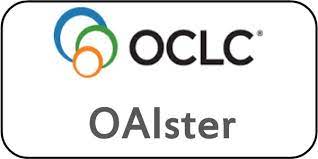Efficacy of Modified Bleach Concentration Method for Demonstration of Acid-fast Bacilli in Fine Needle Aspiration of Lymph Nodes with Clinical Suspicion of Tuberculosis
Keywords:
Bleach method,, ZN staining, tubercular lymphadenitis, fine-needle aspiration cytologyAbstract
Background: Tuberculous lymphadenitis is the most common form of extrapulmonary tuberculosis. Fine-needle aspiration
cytology of lymph node for its diagnosis is simple and safe. Conventional Ziehl-Neelsen (ZN) method for acid-fast bacilli
plays a key role in the diagnosis; however, it has variable sensitivity due to low bacterial load. We evaluated the role of
bleach concentration method before performing ZN method for the detection of mycobacterium in clinically suspected cases
of tuberculous lymphadenitis. Method: A total of 103 samples of fine-needle aspirates were collected from clinically suspected
cases of tuberculous lymphadenitis as part of routine diagnosis. All the samples were processed for cytology, conventional
ZN staining, bleach concentration followed by ZN staining. Results: As per cytomorphological diagnosis of aspirates, 50.50%
cases were categorized as reactive hyperplasia, 43.68% cases as tubercular lymphadenopathy and 5.82% cases of suppurative
lymphadenitis. The detection rates of conventional ZN method and bleach concentrated ZN method were 28.15% and 33%,
respectively. The bleach method has 100% sensitivity and specificity while conventional ZN method showed 85.29% and
100%, respectively. Conclusion: Bleach concentrated method can be done before conventional ZN staining for detection of
tubercle bacilli, as it has a higher case detection rate than that of the conventional ZN method.
Downloads
Published
Issue
Section
License
All open access articles published in IJCP are distributed under the terms of the CC BY-NC 4.0 license (Creative Commons Attribution-Non-Commercial 4.0 International Public License). This license permits unrestricted use, distribution, and reproduction of the articles in any medium for non-commercial purposes, provided that: The original authorship is properly and fully attributed. The IJCP is cited as the original place of publication with correct citation details. If an original work is reproduced or disseminated in part or as a derivative work, this must be clearly indicated. No articles are reproduced for commercial use without prior consent from the IJCP. All licensing requests and permissions for commercial use will be managed by the Publisher.










